Last Updated on July 5, 2020 by Kirsten Raccuia
WELCOME TO MY EXPAT INTERVIEW SERIES!
I’m about to give you an insider’s sneak peek to the truths and realities of expat life. Not just from my point of view. From expats around the world. I’ll be sharing their stories with the dreamers, the movers, the curious. You!
The idea behind this series is to share other expat stories because:
- You are probably bored to tears with me.
- There is a world of opportunities out there. Maybe reading these interviews will inspire you to follow a dream that is more attainable than you ever thought.
- I’m selfish. And totally nosy. I want to learn about how other expats live around the world. As much as I love Malaysia, I’m still a Sagittarius (read feisty, independent, traveler) who’s always ready for the next adventure.
So, without further ado… Let’s Dive into my Expat Interviews Series!
Meet Katherine, an independent spirit who doesn’t take the easy route. As a long-term expat, she’s lived all over this planet. And after 15 years abroad, she decided to repatriate to Estonia. The thing is, going home for a visit isn’t easy, you feel out of sorts – like you don’t belong. But moving back to a country you haven’t lived in as an adult, and that has changed so drastically over the last couple of decades, is a whole different ball of yarn.
Most expats who have repatriated will be the first to tell you that moving overseas is much easier than returning home. Katherine moved two months ago, so she is feeling ALL the feels. It’s all so new and so raw.
Read on for Katherine’s feelings about life as an expat and what returning home means to her.
1. Tell me about yourself…
I was raised with the idea that the world is an open place – you can go as far as your passport can take you.
So, I can’t say that I’m from anywhere, but for the sake of specificity, I have an Estonian passport and I spent my formative years in Estonia, Finland and Switzerland and I was actually born in Russia. In that sense, I deeply identify with literature on adult third culture kids.
I’ve lived in 5 more countries (always self-initiated) since turning 18 (I’m in my early 30s now). For the past 10 years, I lived, on and off, in Denmark. However, just recently I relocated/repatriated/moved on to explore what a new and improved Estonia has to offer for someone like me. All in all, I’ve lived abroad for 15 years (at my own choice) plus the years with my parents when I was a kid, but I don’t count those in.
2. Why did you decide to move abroad?
Since my formative years were not particularly predictable, I was exposed to different worlds, cultures and people from a very young age. Fortunately, I’m naturally a very curious person so it never bothered me. So, in my mind it was always obvious that I’d dedicate a significant part of my life to exploring this crazy world.
Although, with the wisdom of hindsight, alongside being curious I’ve probably also been looking for that elusive feeling of home – a struggle that many third culture kids can relate to.
3. What do you do for a living?
I started out as a copywriter, working in communication, marketing and branding departments in international companies. But I’ve really come into my own as a consumer researcher, using that insight to design products and services that customers actually need and love. So now I run a one-woman consultancy doing just that for companies of various sizes.
4. What is your favorite part of expatriate life?

Just recently I chatted with someone who cut short his time abroad after just 6 months because he learned that living in a foreign country wasn’t for him. He realized that he valued the security of knowing all the streets, the people and speaking in their own language way more than he previously thought. More power to him!
But as I was listening to this person, I realized that I am the complete opposite of that.
I get a real kick out of starting from scratch in a new place, a new job or a new group of people. I’ve genuinely enjoyed reinventing myself with every move, discovering new things about the world (and myself). My innate curiosity has always been a driving force for me in one way or another.
5. What’s the hardest part of being an expat?
Moving from country to country is all fun and games until you get older and start to realize what you truly value and need to feel happy in life.
After a while, this lifestyle becomes more exhausting than exhilarating. In your lowest moments you can get a bit cynical and realize that life is much the same everywhere. And wherever you go, there you are. The framework around you might look and feel different, but people are still just people.
We all just want to feel safe, loved and lead a fulfilling life. It’s just that some countries/cities/communities make it much harder to live the life that you actually yearn for.
I guess that’s the hardest part about being an expat – finding yourself in a place where you realize that you are out of alignment with your values and goals in life. Or realizing that you don’t know what it is that you want, but you know that you don’t feel good where you are.
And if the pain of that realization hasn’t hit the person full on just yet, eventually it will. When people reach that point, then you see expats literally run out of their adopted country, feeling 100 different kinds of relieved and vowing to never return to that awful country again 🙂
Been there, done that, so no judgment, right!
6. What’s it like making friends as an expat in the different countries that you’ve lived?
I’ve always had the intention of making local friends, and that has either worked out or it has not.
Overall, I can’t say that it’s been easier or harder in any particular country. The common theme is that it takes a lot of effort and a lot more time than you expect. Being able to make friends, any kind of friends, is dependent on so many factors.
I’ve found that being really good at being on your own is super important while you consistently put yourself out there. Alongside that, it’s important to trust that you will find like-minded people eventually, even if there will only be a few of them.
It’s also important to have realistic expectations that the kinds of friend groups that some expats may have left behind should not be the benchmark of success. Otherwise, it’s just a recipe for bitterness.
7. What does the term home mean to you?
Short answer – I don’t know.
Long answer – probably the feeling that I can be myself and I’m accepted for it.
Often that feeling comes with specific people rather than the thought of any particular country. I feel at home when I’m on my own. I feel at home with my closest friends who are Belgian, Greek, Estonian and Italian. I feel at home through traditions, routines and landmarks that have a sentimental meaning to me.
Ultimately, that’s what most expats strive for – this feeling of being accepted in the countries where they’ve chosen to live in (even if it’s for a limited time). But unless you’re lucky enough to run into people who make you feel accepted in that context, you will inevitably feel disconnected from the wider society.
8. What has been the most helpful thing in adapting to life abroad?
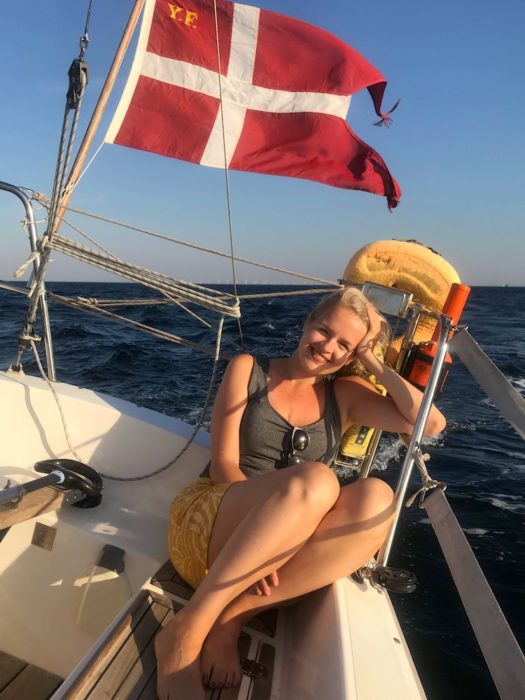
On the soft skill side – being curious, questioning my interpretations of what I think is going on around me before judging something as bad or dumb, and loving my own company until I get a healthy social life going.
On the practical side – having a place to live is a big thing for me. I had to move around a lot while living in Copenhagen, mainly because the rental market is nuts there. That really had a negative impact on me. Constantly having practical issues take up mental space is draining, so it doesn’t leave any time or energy to actually enjoy the good things about where you’ve chosen to live.
I really feel for, and deeply respect, people who have to deal with visa issues for instance. I don’t know how you can possibly focus on adapting to a new country when you have that concern hovering over your head all the time.
9. Have you felt that you fit in culturally in the countries where you’ve lived?
No, never.
In general, I don’t feel that I fit in very well anywhere. That’s probably the legacy of being a third culture kid speaking. The challenge for me (but also for anyone else, really) is learning to be comfortable with not fitting in.
Owning the ways in which you’re different and being okay with that has been an ongoing process for me. I’ve reached the point now where I don’t expect to fit in anywhere I go.
Surprisingly, that has helped me make much better connections with people. Go figure!
10. What advice would you give to expats who want to follow in your footsteps?
Whatever you think your life abroad is going to look like, it’s probably not going to look nor feel anything like it.
Save yourself from the disappointment by being very conscious of that vision you’re chasing and be ready to make changes to it along the way. The only thing that’s for sure is you will be forced to step out of your comfort zone every step of the way. It’s your choice whether you embrace it as a journey (that you can bring to an end whenever you want) or let it bring you down.
11. What’s the biggest adjustment you’ve had to make being an expat?
That’s a great question because I’m usually quite willing to make adjustments (which is not the norm, I’ve learned). But I have come up against some hard walls at work where I’ve often been seen as a foreigner first and not a human being that has knowledge and skills to bring to the table.
It’s been an ongoing struggle for me to accept that no matter how smart, capable and hard-working I am, many of my colleagues at different workplaces (international ones, on top of that) haven’t been able to see past the foreigner label. I’ve had to work really hard not to let it get to me, but I think in the end it did anyway.
Now I have the opposite problem in Estonia.
Since the financial crisis in 2008 a significant percentage of Estonians left the country (I left a bit earlier), leaving those who weren’t able to/interested/brave enough to move abroad kind of bitter and, dare I say, jealous.
I’ve heard many Estonians admit that when they visit they have to deal with this kind of resentment from those who stayed behind. People who haven’t gone through the struggle of settling in abroad often have this idea that people live a super affluent and easy life in a foreign country, but it’s hardly the case. At least it hasn’t been the case for me, so it’s odd having to deal with such prejudice now that has very little to do with my actual experience abroad.
It seems that you just can’t win with some people 🙂
12. Why did you choose to repatriate to Estonia?

I’m not sure I have a neat answer to it yet, I’m still trying to put together a coherent blog post about it myself.
But it’s been partly due to curiosity (shocker!) around what Estonia has become over the years that I’ve been away. I never wanted to return to the Estonia that I left behind at a relatively young age. So, if the country hadn’t gone through some crazy changes since then, I’d probably not be here now either.
But I’ve also missed speaking Estonian, which I’m really not that good at anymore. I’m a linguist by training so over the years I realized that I need to love the language I’m speaking on a daily basis (Danish just ain’t it, sorry!).
So, it’s nice to be able to speak a language that I adore on a daily basis and still be able to work in English, which is also a language that I love.
Finally, I’ve probably been feeling quite burned out from the expat lifestyle. I’m not saying that I’ll never move somewhere new again, but for now, some degree of familiarity is exactly what I need.
13. Have your years abroad been as you thought they would be?
No, far from it haha.
Like many others, I thought life abroad is somehow more exotic, more interesting, more fun, more everything than the life that I knew. So many of us move abroad thinking that we’re going to have the time of our lives. But then that vision comes to a screeching halt quite fast.
No one is truly prepared for what starting a new life from scratch really takes. I certainly wasn’t.
But I got up on my feet and kept working with the challenges because I was determined to explore the world. So, while I didn’t get what I thought I was signing up for, I’d still do it all over again. Both if I had to go back in time and still be as young and naive as I was, as well as if I had the experience that I have now.
Final Thoughts:
Repatriating to the US isn’t really on our radar. But we know a lot of couples who have moved back to their various countries after years abroad and find it a struggle. I hope to do a follow-up with Katherine down the road, to hear what it’s like to no longer be an expat.
Read more about Katherine on her informative blog Bad Days Abroad.
Like this post? Save it for later.
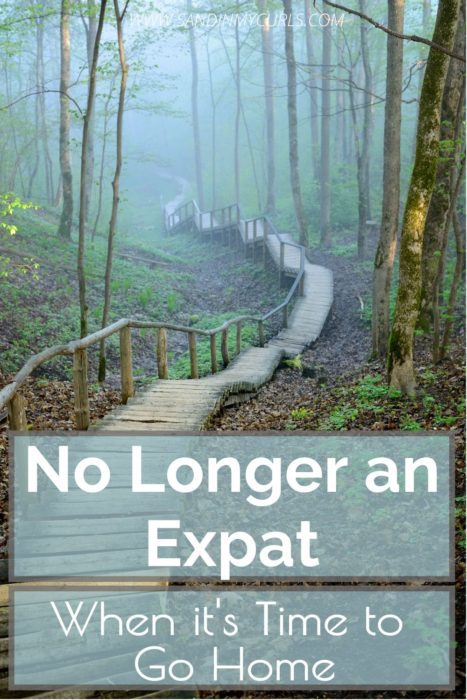
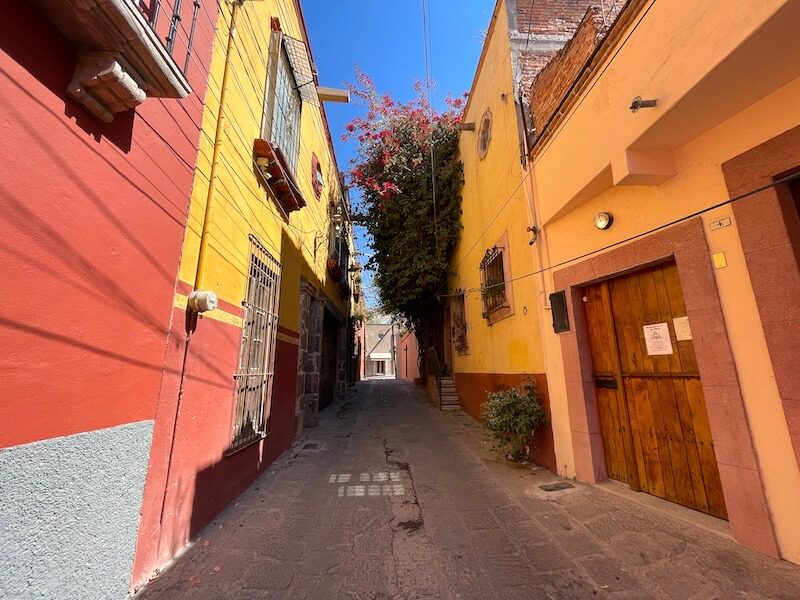
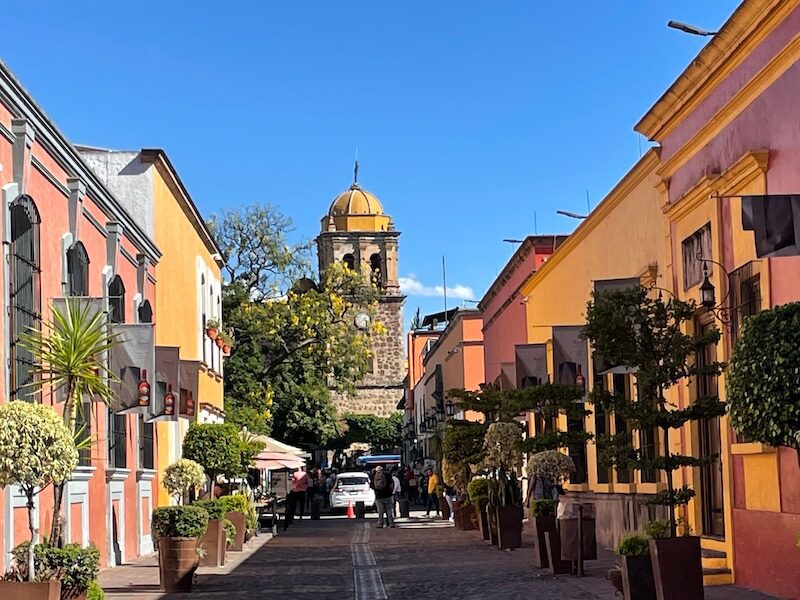
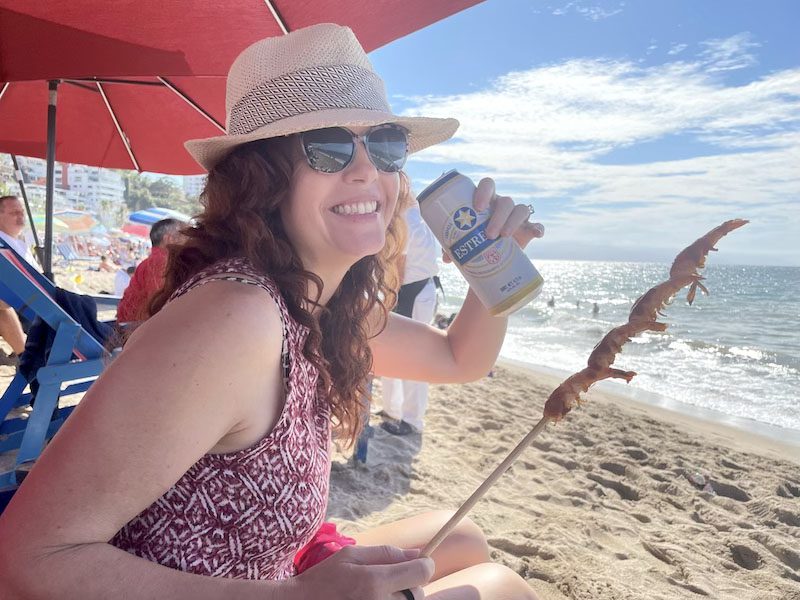
“We all just want to feel safe, loved and lead a fulfilling life”
That statement is everything!!!!
I believe expatriates who have been brought to a country by a business have a completely different experience due to supports other’s are not given.
Repatriation has been extremely tough for most of my friends who enjoyed their experience living abroad.
Hi Amy! Thanks for commenting!
I totally thought about you while going over Katherine’s interview.
And I think you are right, a lot of people don’t get any support when moving overseas which makes things really difficult for some people.
XO,
K
Very interesting viewpoint for new expats and seasoned ones! Excellent idea to do this series Kirsten!
Thank you, Patti! It’s a very different view, which is why I love having her here!